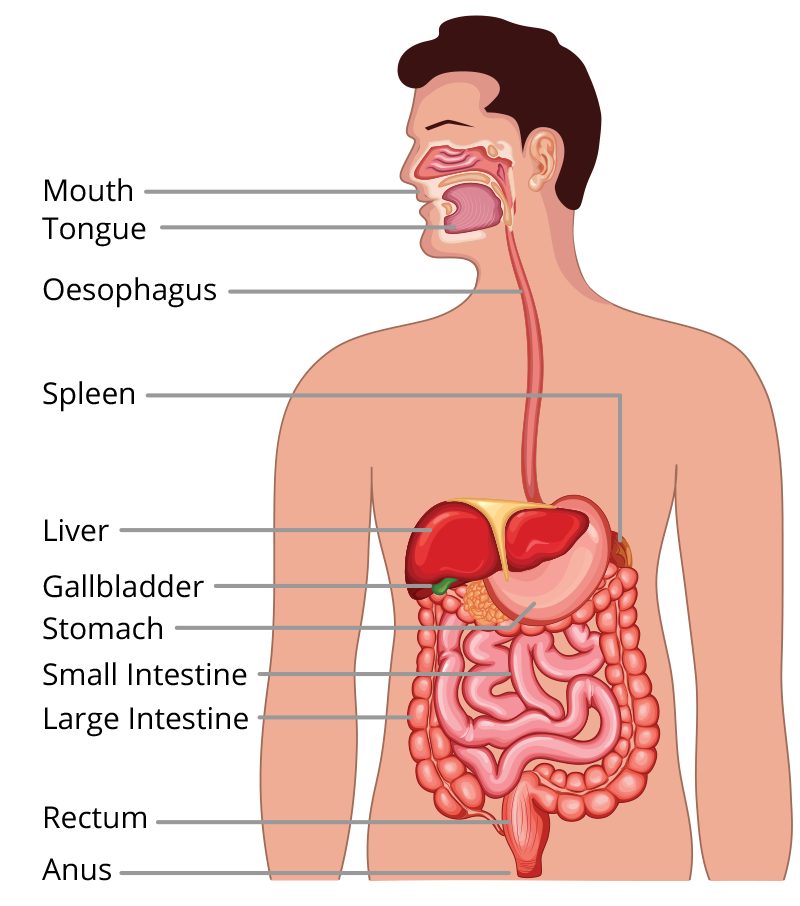Know about your bowel
How the bowel normally works
The digestive system includes the mouth, oesophagus, stomach, small intestines and colon, rectum and anus.
When food or drinks are consumed, they travel through the digestive system and are eliminated as faeces in a bowel motion or stool from the anus.
Do you know?
The term “bowel” is used collectively to refer to the small intestine, colon and rectum. It can be further categorised into:
Small bowel: small intestine
Large bowel: colon and rectum

When the stool reaches your lower colon and rectum, nerve impulses travel from your rectum via the sacral nerves and along the spinal cord up to your brain. Your brain tells you that your bowel is ready to be emptied.
If you decide to delay your bowel movement, a message is sent from your brain to the spinal cord to tell the sphincter muscle, which is located near your anus, to stay closed until there is a better time to empty.
If you decide to empty your bowel, a message is sent back down your spinal cord to the sphincter muscle, telling it to relax and pass the stool.
This is how your bowel works when you do not have a spinal cord injury.
Effects of a spinal cord injury
After spinal cord injury, your bowel will usually not work like it did before the injury. This type of bowel is often referred to as a neurogenic bowel.
T12
Reflex bowel
At and above T12 vertebral level (sacral nerves are intact)
Due to the spinal cord being injured, the message does not reach the brain, but remains in the spinal cord. The brain does not send a message down the spinal cord about whether or not it is a good time
to empty your bowel.
The reflex activity generated in the sacral spinal cord causes the sphincter muscle to open when the rectum is full, and may be triggered by digital or chemical stimulation.
Non-reflex bowel
Below T12 vertebral level (sacral nerves are damaged)
Due to nerve damage at a lower spinal level, the message is not able to reach the spinal cord. No reflex contraction can occur, and the bowel does not squeeze to empty its content.
The sphincter muscle remains loose all the time and if too much stool collects in the rectum, it will come out causing a bowel accident.
Note: Sacral nerves are responsible for controlling the bowel.